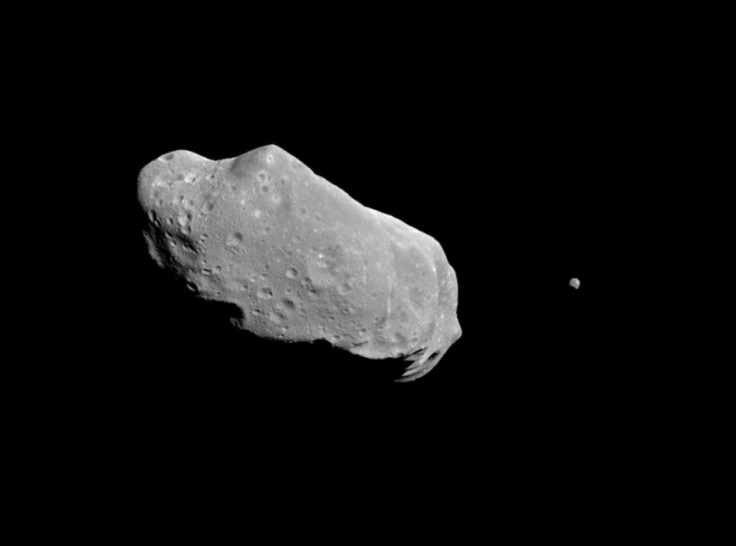New Class of Easily Retrievable Asteroids That Could Be Captured With Rocket Technology Found

A group of scientists at the University of Strathclyde in Glasgow, Scotland, have discovered a dozen asteroids orbiting the Earth at a distance close enough for them to be potentially mined for industrial and precious metals with present-day rocket technology, reports said.
According to MIT Technology Review, the scientists searched through the current database of around 9,000 near-Earth objects and zeroed in on 12 asteroids, called “Easily Retrievable Objects,” or ERO, whose velocity could be changed by less than 500 meters per second to bring them to an accessible orbit, thus enabling the asteroids to be mined.
An accessible orbit, according to the report, lies around the L1 or L2 Lagrangian points, where the gravitational force of the Sun and Earth are balanced, and these points are said to be about 1 million kilometers (621,000 miles) from Earth.
Among the 12 asteroids, all of which have diameters ranging between two and 20 meters, one ERO could be brought to an accessible orbit by changing its velocity by only 58 meters a second, and with present-day technology, this could be done as early as 2026.
But, there are various concerns, especially when it comes to dealing with the asteroids that are orbiting L1 or L2. The MIT report notes that these orbits are highly unstable, and that the asteroids have to be constantly pushed around to keep them within the orbit.
Safety is another concern, as near-Earth asteroids are considered a threat to humanity. But, as it is possible to move only small rocks with today’s technology, the danger of pushing an asteroid into a collision-course with Earth is minimal.
Last year, Planetary Resources, a Seattle-based company that is interested in mining asteroids, believes that these minor planets contain untapped raw materials, which could be potentially used for rocket fuel, and has claimed mining them could be a trillion-dollar industry.
“Many of the scarce metals and minerals on Earth are in near-infinite quantities in space," Peter H. Diamandis, co-founder and co-chairman of Planetary Resources, Inc., said in a statement, at the time. “As access to these materials increases, not only will the cost of everything from microelectronics to energy storage be reduced, but new applications for these abundant elements will result in important and novel applications,” he said.
© Copyright IBTimes 2024. All rights reserved.





















